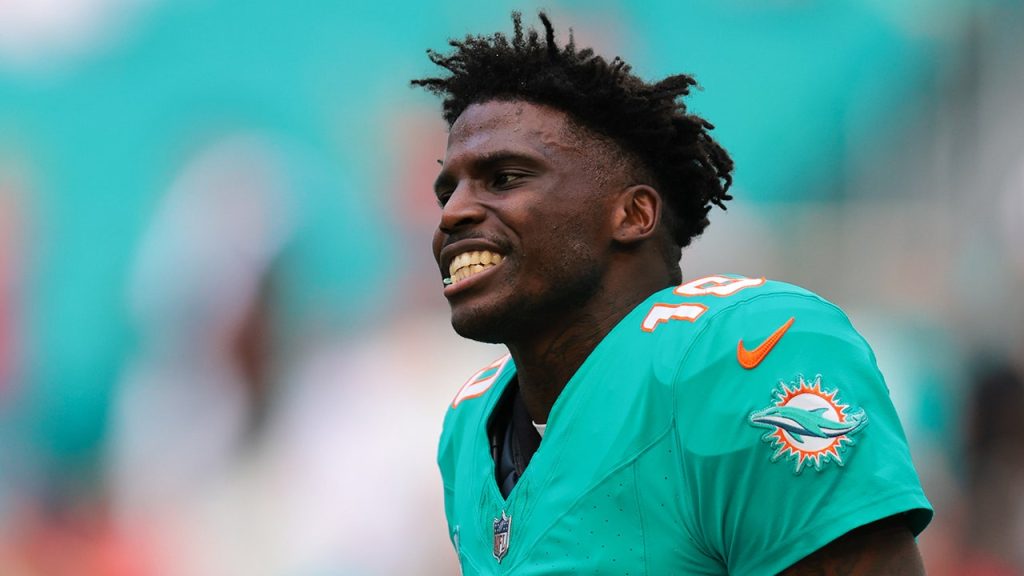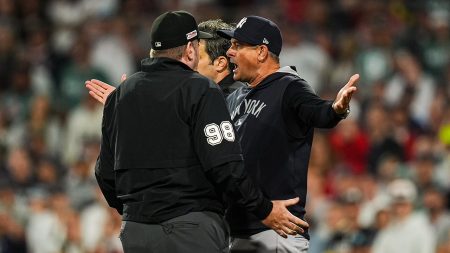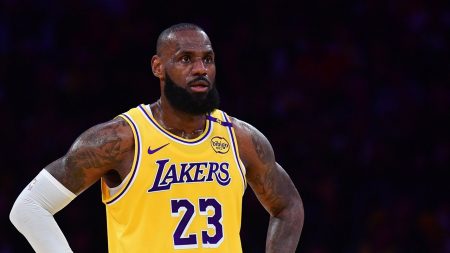The Miami Dolphins’ season concluded with a disappointing loss to the New York Jets, extinguishing their playoff hopes and sparking a wave of emotion, particularly from star receiver Tyreek Hill. His post-game comments hinted at a potential departure from Miami, fueling speculation about his future with the team. Hill’s remarks, delivered in the raw aftermath of a frustrating loss, suggested a need to prioritize his career and family, leaving the door open for a potential move away from the Dolphins. This ambiguity, coupled with his early exit from the game, further amplified concerns about his commitment to the team.
Dolphins General Manager Chris Grier and Head Coach Mike McDaniel swiftly addressed the situation, holding productive meetings with Hill the following day. Grier emphasized the emotional context of Hill’s comments, highlighting the team’s challenging journey from a 2-6 start to a Week 18 fight for a playoff spot. He acknowledged Hill’s visible frustration, attributing it to the culmination of a difficult season compounded by playing through injury. While Grier confirmed that the conversations were frank and addressed Hill’s post-game remarks, he clarified that Hill did not explicitly request a trade. This clarification aimed to quell immediate concerns about Hill’s imminent departure and emphasized the team’s desire to retain him.
The meeting between Hill and McDaniel served as a platform for open and direct communication. McDaniel addressed Hill’s early departure from the game, emphasizing its unacceptability and the expectation of future accountability. Hill, in turn, responded with honesty and a willingness to accept responsibility for his actions. McDaniel characterized the conversation as a necessary clearing of the air rather than a damage-control exercise, underscoring the existing strong relationship between player and coach. The focus was on addressing the specific incident and ensuring a shared understanding of expectations moving forward.
Hill’s post-game outburst, channeling a similar incident involving Antonio Brown, further fueled the narrative of player discontent. The comparison to Brown, known for his dramatic exits and public disputes, added another layer of complexity to the situation. Hill’s raw emotions, expressed in the heat of the moment, raised questions about his long-term commitment to the Dolphins and his ability to handle the pressures of a challenging season. This comparison, while perhaps unfair, highlighted the sensitivity surrounding player behavior and the potential for misinterpretation of emotionally charged statements.
The Dolphins organization, keen to avoid a prolonged saga, moved swiftly to address the situation. Grier and McDaniel’s prompt engagement with Hill demonstrated their commitment to open communication and their desire to retain a key player. Their emphasis on the context of Hill’s comments, his injury struggles, and the team’s overall challenging season aimed to provide a more nuanced understanding of the situation. The organization’s proactive approach underscored their belief that the incident was a product of a frustrating season finale rather than a fundamental rift between player and team.
While Hill’s future in Miami remains a subject of speculation, the immediate aftermath of the incident suggests a commitment from both sides to navigate the situation constructively. The Dolphins’ public statements emphasize their appreciation for Hill’s contributions, acknowledging his competitive spirit and the emotional toll of the season. The focus on open communication and mutual accountability indicates a desire to move forward collaboratively. Ultimately, the offseason will provide a clearer picture of Hill’s long-term plans, but the initial response from both player and team suggests a willingness to work through the challenges and strive for a more successful future.










